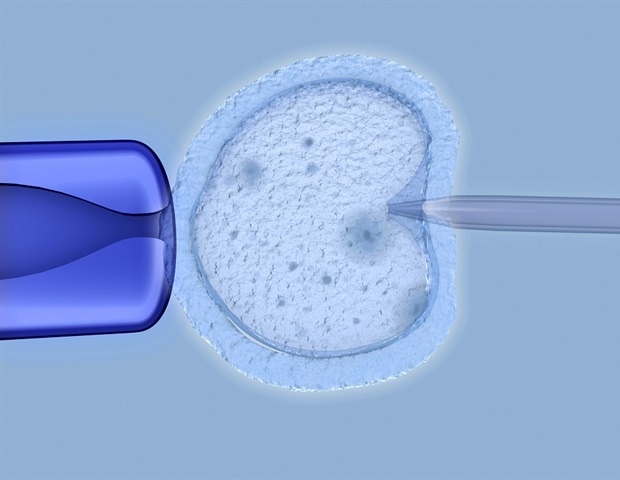
The reproductive and fertility wellness brand, OVUM, highlights the potential of artificial intelligence (AI) in revolutionizing the In vitro fertilization (IVF) field.
With success rates in IVF outcomes remaining low and innovation progressing slowly, OVUM emphasizes the incorporation of AI presents an opportunity for better quality treatment and improved IVF success rates.
According to recent statistics from the Human Fertilisation and Embryology Authority (HFEA), the live birth rate per embryo transferred is currently at 25% and 19% for patients aged 35-37 and 38-39, respectively. These figures underscore the need for advancements in IVF science, and the integration of AI technology within IVF clinics is long overdue. Globally, current IVF success rates hover around 30%, prompting a surge in research efforts to enhance these outcomes. Consequently, AI and machine learning are emerging as potential solutions in the IVF clinic.
The use of AI in IVF clinics holds great promise for addressing the challenges faced by couples struggling with infertility. IVF involves the retrieval of an egg from the woman’s ovary, fertilization in a laboratory, and subsequent transfer of the resulting embryo to the woman’s uterus. However, the lack of consistent success rates and variations among clinics highlight the need for improved techniques. OVUM poses the question: Can AI help reduce these variabilities and increase IVF success rates?
AI refers to mathematical algorithms that automate decisions or analyses performed by clinicians or embryologists. The ability of algorithms to process and categorize vast amounts of data presents significant opportunities for AI’s role in IVF. By leveraging data from previous IVF cycles, AI can suggest personalized IVF protocols and aid in selecting the most viable embryo for transfer, two crucial aspects of IVF treatment.
OVUM highlights that human subjectivity, inherent in the decision-making process, contributes to variations between clinics. The integration of AI can eliminate the subjectivity of human assessment and objectively rank embryos or determine patient protocols based on data-driven insights.
Embryo selection is one area where AI has received considerable attention and is likely to be the first application of AI in IVF clinics. Currently, embryologists manually select the most viable embryo for transfer based on visual observations and chromosomal testing results. However, this time-consuming process is susceptible to bias and error due to variations in training, clinic practices, and grading methodologies. Fertility experts at OVUM share that AI tools can overcome these limitations by leveraging pattern recognition and reference data sets, enabling them to recommend the embryos most likely to result in successful pregnancies.
The potential impact of AI in IVF extends to treatment protocols. Currently, protocols can be highly variable, and a trial-and-error approach is often necessary to find an optimal, personalized protocol for each patient. This process can be emotionally and financially burdensome for couples undergoing multiple IVF cycles. AI can assist physicians in formulating optimal, personalized fertility treatment plans based on patient characteristics, leveraging large data sets that would otherwise be unavailable to clinicians.
Founder of OVUM, Jenny Wordsworth, as a lawyer and member of the British Fertility Society, comments on factors that must be considered before AI is implemented across the fertility sector: “We need to acknowledge that relying solely on high-quality randomized controlled trials (RCTs) to validate the efficacy of AI in the IVF sector may hinder progress. By the time an RCT is published, the AI algorithm is already outdated. We should explore alternative validation methods for this new technology, considering its unique characteristics as a clinical decision support tool.
“Regulatory bodies, such as the HFEA, play a crucial role in assessing new treatments like AI tools for embryo selection. While RCTs are important, the newly-proposed (but not yet approved) sandbox approach by the HFEA could enable faster-paced innovation by allowing AI to be approved for a specified period, followed by real-world evidence assessment.
“The role of embryologists is evolving, and certain tasks, like measuring follicles or counting cells in embryos, can be effectively delegated to AI. However, healthcare professionals need to understand AI before embracing it in clinical settings. Education and time will help build trust and demonstrate that AI enhances their practices without replacing their expertise.
“Transparency is a key concern with AI, as it often operates as a ‘black box’ without revealing its decision-making process. To establish trust, we must choose more transparent and interpretable models that allow professionals to review and understand the workings of AI.
“Safety and rigorous reporting are essential for clinicians and patients to trust AI models. Open discussions on the potential risks and benefits of AI in medicine, including IVF, are crucial for developing a robust regulatory framework.
“Data availability is vital for the mainstream use of AI in clinics. Sharing data in a fair and medically confidential manner, along with developing methods to streamline data processing, will enhance the effectiveness of AI models. With over three million women undergoing IVF globally each year, the more data we have, the better AI can contribute to improved outcomes.”





_6e98296023b34dfabc133638c1ef5d32-620x480.jpg)







